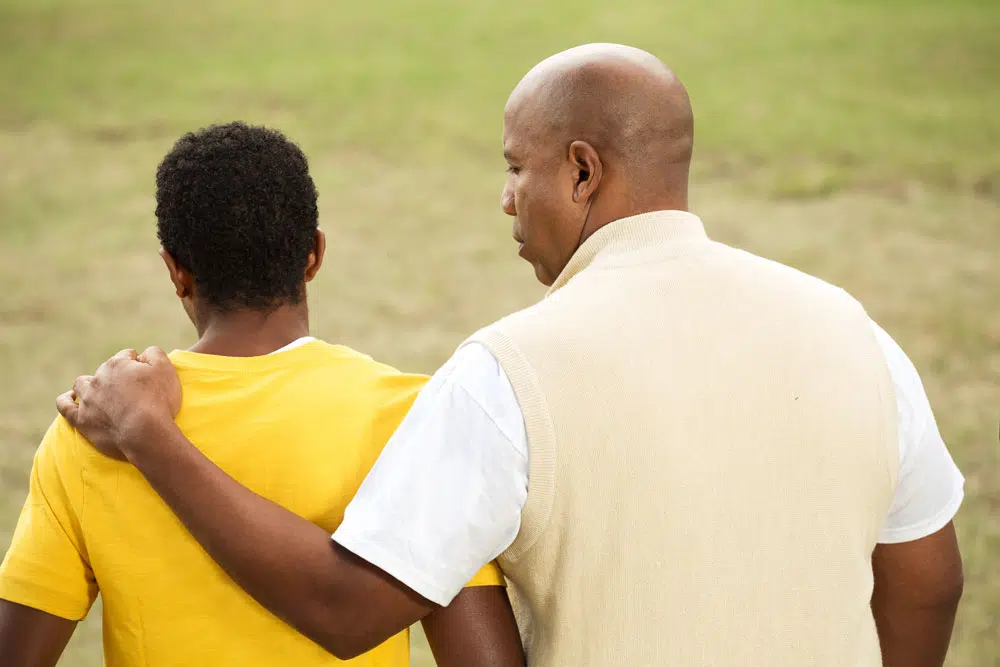In Shakespeare’s “The Winter’s Tale,” a lowly shepherd discovers an abandoned baby. He says, “Mercy on ’s, a bairn! A very pretty bairn. A boy or a child, I wonder?” And the audience laughs, because “boy or child” sounds like an actor forgetting his lines. But in 16th century England, a “child” was a girl. And today, in Virginia, an 18-year-old can (and most often is) a child.
Any Combination Thereof
Within Code of Virginia § 1-207, the good legislators define their terms:
- “Child,” “juvenile,” “minor,” “infant,” or any combination thereof means a person less than 18 years of age.
Under those general guidelines, and assuming you are blessed with children presenting no intellectual, mental, emotional or physical disabilities, your 18-year-old is an adult. Your offspring younger than 18 are minors.
In the eyes of the law, minors require special protections in family law matters, but otherwise are (cold-blooded as it sounds) your property. They legally cannot:
- Own real or personal property
- Sign contracts
- Vote
- Assent to or decline medical procedures
Children (minors, juveniles, or any combination thereof, like “minor juveniles,” or “infant minors,” or “infant juvenile minor children”) have basic human rights.
Virginia zealously defends the rights of its weakest and most innocent citizens, and Virginia will go after you tooth and nail for child abuse or neglect, so children clearly have some rights:
- The right to food, water, shelter, warmth, clothing, and nurturing care
- The right to be safe and unmolested in their person
- The right of equal protection (under the U.S. Constitution) as to race, gender, religion, and disability
Virginia Parenting Time for Minor Children
If a child under age 18 refuses to follow a court-ordered custody arrangement, the custodial parent (not the child) will face legal repercussions. That is clear enough, since the child has no legal right to assent or refuse anything.
The parent is on the hook for the child’s obstinacy. It is quite a stick the court yields, too. Under Virginia Code § 16.1-292, the parent who refuses to comply with a court order could spend up to a year in jail!
The minor child may have very personal reasons to postpone or avoid parenting time. Experts at Our Family Wizard suggest avoiding panic and talking to your offspring to find out why she or he refuses to comply with visitation (whether a minor or an 18-year-old).
Carrots and Sticks
Your 18-year-old is legally an adult. No longer a child, no longer subject to legal agreements signed between parents, the 18-year-old can ignore custody agreements.
You and your ex-spouse must seek a social, emotional and familial reason to keep the visits coming, rather than simply wave a court order in your offsprings’ faces.
More carrot, less stick.
Neither you nor your ex-spouse can compel your adult child to comply with the Virginia Court, and the Virginia Court will not bother to attempt such a move. The Court recognizes it has no authority over the adult child.
The 18-Year-Old Child
Not all of Virginia’s children enter this world on equal footing. If you are the parent of an exceptional child, your 18-year-old can still be a child by the law shown in Code of Virginia § 22.1-213:
- “Children with disabilities” means those persons (i) who are age two to 21, inclusive, having reached the age of two by the date specified in § 22.1-254; (ii) who have intellectual disability or serious emotional disturbance, are physically disabled, speech impaired, deaf or hard of hearing, visually impaired, or multiple disabled, are otherwise health impaired, including those who have autism spectrum disorder or a specific learning disability, or are otherwise disabled as defined by the Board of Education; and (iii) who because of such impairments need special education.
Your 18-year-old with special needs can still be considered your “minor child” if you and your ex-spouse provide substantial, ongoing care to provide a comfortable life for her or him. Your special needs child should abide by the custody and visitation agreement right up until age 21 or emancipation.
If push came to shove and your 18-year-old special needs child refused to go along with the visitation order, a Virginia Juvenile and Domestic Relations Court may rule it has no authority to compel the child.
The Court would base such a decision on the severity of the disability and the court’s reasonable assurance that the child has the intellectual capacity to make independent decisions as an adult.
Especially with an exceptional child, both you and your ex-spouse would do well to operate entirely with carrots and no sticks. Your exceptional child has enough obstacles to contend with, without upending the parent-child relationship even after divorce.
At The Firm For Men we stand ready to assist you, the Virginia man, with questions of child custody, parenting time, and child support. We focus on protecting Virginia men’s rights and safeguarding their financial security. Please contact us today or telephone our Virginia Beach offices at (757) 383-9184.

